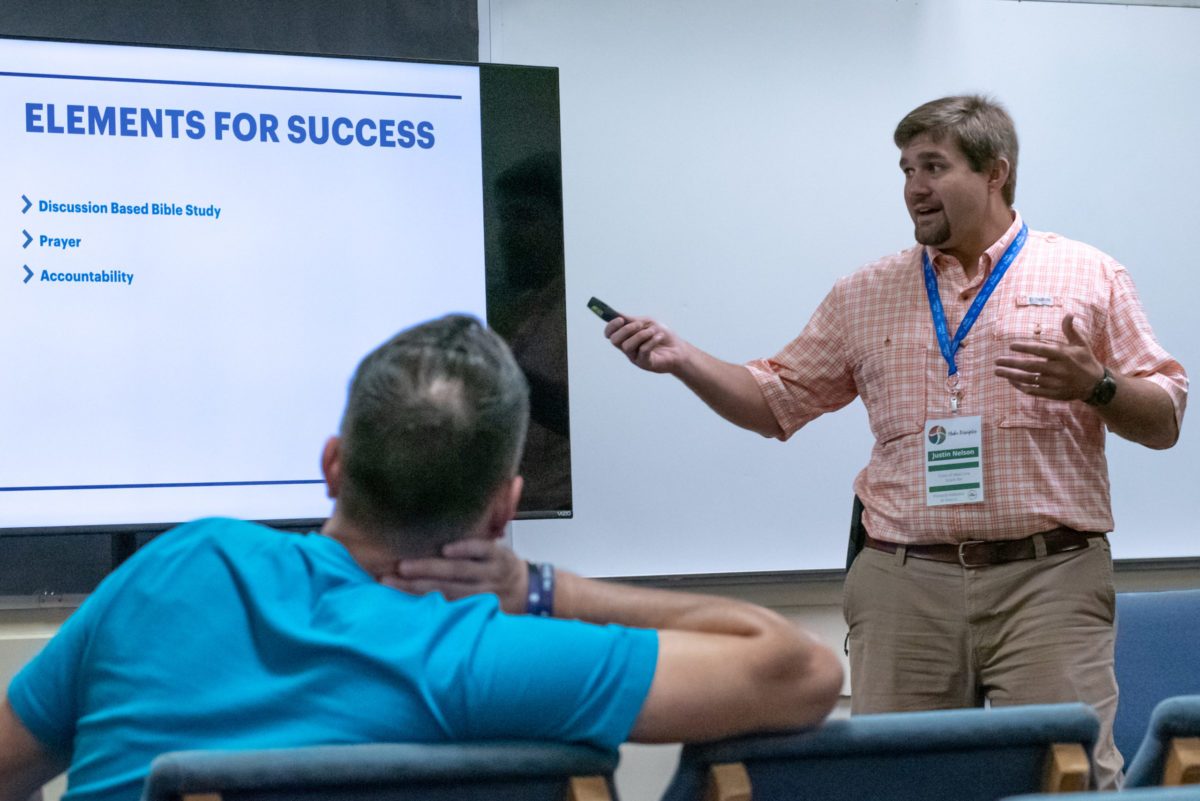Many faithful Sunday School attenders are unaware that the Sunday morning classes originally began as an outreach.
According to the Baptist Standard, in 1780, the Englishman Robert Raikes came up with the idea of educating children in the slums to save them from a life of crime. Since the children worked six days a week, Sunday was the only day available. The Bible was the main or only textbook.
Over time Sunday School became more about teaching the Bible than using it to teach. Attendance rose through the turn of the 20th century and peaked in the mid-1900s, eventually adding adult classes to what was originally only for children.
Though still a major component of most Baptist churches, Sunday School attendance is on the decline — and that’s a concern for people like Justin Nelson, pastor of Camden Baptist Church.
Nelson wants to Christians to see Sunday School as an essential part of discipleship, not just part of the Sunday morning routine. Nelson recently shared some tips with other leaders about how to change a Sunday School’s emphasis from solely learning about the Bible to making disciples.
“[Sunday School] is making well-educated church members, but it’s not making disciples,” he asserted, speaking during a breakout session at this year’s Pinnacle conference.
Seating and discussion
One immediate element leaders should consider is setup. When picturing a traditional adult Sunday School, most see a room filled with rows of church members facing a volunteer at the front, teaching from a church-approved Bible study curriculum.
Nelson suggests changing a classroom’s layout. When seats are arranged with chairs in rows and the teacher in front, it implies the teacher wants everyone to be quiet so he/she can speak. Arranging classes in circles or semicircles with the leader sitting down encourages discussion, Nelson said.
“[Sunday School members] are going to leave from your Sunday School class [having sat] in a lecture,” he asserted. “Do not force them to sit in two lectures on one day. If we are going to be iron sharpening iron, then I need to learn from you and you learn from me.”
He also is a strong proponent of discussion-based classes. Though he encourages Bible study, Nelson said “we don’t need our group times to be where we’re expounding on our knowledge of Hezekiah.”
A successful disciple-making class also stays grounded in prayer.
“Prayer obviously needs to be a part of this, prayer not just for the sick, but for each other,” Nelson said, which involves listing prayer requests as well as documenting answers to those prayers — a tangible reminder of what God is doing.
Accountability and fellowship
Another important aspect of Sunday School is accountability — but the accountability Nelson refers to isn’t an attack on those in sin or trying to find someone in sin.
Instead, it’s holding each other accountable for being in the Word that week, allowing God to work on personal areas of sin and encouraging each other to abide in Christ.
Nelson recommended starting class with: “What’s God done in your life? What’s He said to you?”
Fellowship also is vital, but not simply “hanging out together.”
Calling it “biblical community,” Nelson noted, “We need to be in each other’s homes. We need to be having those specific times of Sunday School fellowship where we’re also using it as an outreach opportunity.
“We need to be involved relationally before we are involved biblically,” he said.
And both service and missions are crucial.
“If we truly are about making disciples, [even] the nursery is about making disciples because we’re praying over those babies and we’re making it possible for momma and daddy to be in worship; therefore, that’s a part of the disciple-making process.”
Outreach
“Missions” is more than a Sunday School group going on a missions trip, Nelson said.
“It’s how a Sunday School class aligns itself with the missional footprint of the church and its outreach efforts.”
One critical role in adult Sunday School classes is an “outreach coordinator” who not only takes roll but specifically asks someone to contact those who haven’t attended recently — intentionally making contact with everyone on a regular basis, but not “beating anyone to death” about it, Nelson said.
But the goal is not 100% attendance.
“We want to get away from celebrating 100% attendance,” Nelson asserted. “We want so many people on the roll that it takes us five minutes to see who is there. That’s our prospect list. Don’t even think about it as a roll.
“We don’t want to just biblically educate our people. We want to facilitate life change. We want to make disciples as a result of our group.”






Share with others: